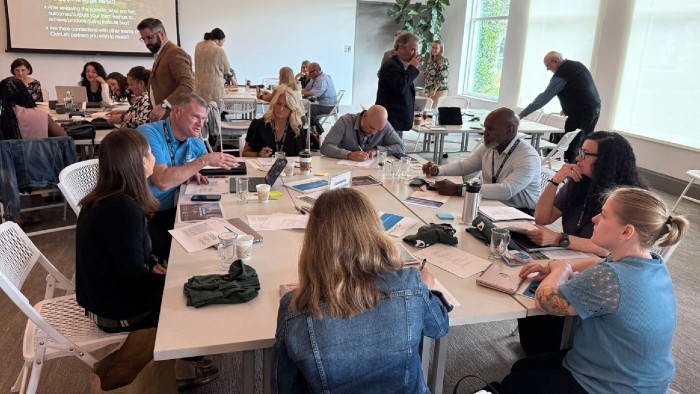
CORI Research on Digital Skilling is Put into Practice
 Research completed by the Center on Rural Innovation (CORI) last year showed that many people in rural communities are interested in tech careers, but those communities have been largely left out of the nation’s rapidly expanding digital economy. While several national tech skilling providers have been successful with urban and suburban learners, CORI’s research and experience in rural communities across the U.S. has shown that none are really moving the needle on rural tech employment. Even with the rise of remote working during the COVID-19 health crisis, rural areas continue to lag behind urban areas — leaving an opportunity for upward mobility on the table for rural learners.
Research completed by the Center on Rural Innovation (CORI) last year showed that many people in rural communities are interested in tech careers, but those communities have been largely left out of the nation’s rapidly expanding digital economy. While several national tech skilling providers have been successful with urban and suburban learners, CORI’s research and experience in rural communities across the U.S. has shown that none are really moving the needle on rural tech employment. Even with the rise of remote working during the COVID-19 health crisis, rural areas continue to lag behind urban areas — leaving an opportunity for upward mobility on the table for rural learners.
CORI’s Rural America’s Tech Employment Landscape report identified several barriers to success to these training programs taking root and thriving in rural communities. One barrier is an information gap — learners often lack awareness of what careers exist in tech that might be available in their communities and training providers often lack the channels to find those who might be interested in what they offer. Additionally, such training programs may be expensive and delivered in ways that are inaccessible for many learners in rural communities.
In response to their research, CORI is now trying to solve the problem of tech skilling programs that are not meeting the diverse needs of rural learners and create more sufficient access for them, especially those from low-income backgrounds. A new grant from Ascendium allows CORI to address this core problem, connecting to an investment priority of ours to support and evaluate innovative workforce training models and strategies that connect rural learners to high-quality jobs. An important aspect of their work will be partnering with rural leaders, training providers, postsecondary institutions and employers to identify solutions informed by local context and national trends.
“We are thrilled at the opportunity to continue to partner with Ascendium in advancing the landscape of tech talent — and tech opportunity — in rural communities across the country,” said Brēyana Ray, director of CORI’s Rural Innovation Network. “Our extensive research and case studies in the first phase of our partnership revealed that significant opportunity can emerge when there is a true investment in creating and building out a tech ecosystem in communities and regions.”
Over the next three years, CORI will work with six communities in their Rural Innovation Network to identify tech employment needs among local employers, then work to create and implement tech training programs designed to meet the needs of rural learners and local employers. This builds on the thought that training alone will not provide a pathway into tech careers for rural learners — a sustainable solution requires coordinated efforts among training partners, employers and community organizations.


